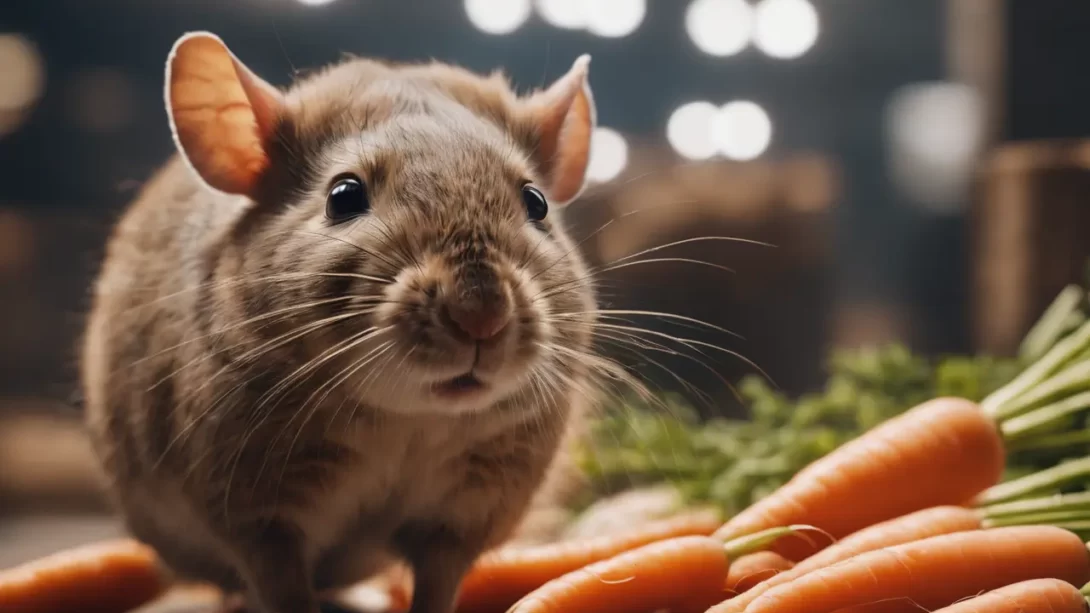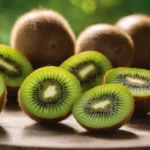Rats are increasingly popular as pets, known for their intelligence and sociability. As with any pet, understanding their dietary needs is crucial for their health and well-being. A common question among rat owners is whether carrots are a suitable food choice for their furry friends. This article aims to explore the nutritional benefits and potential risks of feeding carrots to rats.
Nutritional Profile of Carrots
Carrots are well-known for their health benefits and nutritional value. They are rich in essential vitamins and minerals, including beta-carotene (which converts to vitamin A in the body), vitamins K and B6, and minerals like potassium and fiber. These nutrients are beneficial not only to humans but also to rats. The comparison between raw and cooked carrots reveals slight differences in nutritional content, with raw carrots typically retaining more of certain vitamins and enzymes.
Understanding the nutritional makeup of carrots is a step towards assessing their suitability in a rat’s diet.
Health Benefits of Carrots for Rats
Incorporating carrots into a rat’s diet can offer several health benefits:
- Vision Health: The beta-carotene in carrots, which converts to vitamin A, is essential for maintaining good vision, a benefit that extends to rats as well.
- Digestive Health: The fiber in carrots aids in digestion, helping to keep a rat’s gastrointestinal system running smoothly.
- Dental Health: Chewing on raw carrots can help keep a rat’s teeth trimmed and healthy.
- Overall Well-being: Carrots are also a source of antioxidants, which support immune health and reduce inflammation.
These benefits make carrots a potentially valuable addition to a rat’s diet. However, it’s important to balance them with other foods to ensure a well-rounded intake of nutrients.
Risks and Considerations
While carrots are generally safe for rats, there are important considerations to keep in mind:
- Portion Size: Carrots should be given in moderation. Despite their health benefits, overfeeding can lead to digestive issues due to their high sugar content.
- Choking Hazard: The size and hardness of carrots, especially when given whole, can pose a choking risk. It’s important to cut them into small, manageable pieces.
- Dietary Balance: Carrots should not replace the primary components of a rat’s diet, which should be nutritionally complete. They should only be given as a supplement to their regular diet.
Adhering to these guidelines ensures that carrots remain a healthy treat rather than a dietary risk.
How to Safely Introduce Carrots into a Rat’s Diet
Introducing carrots to a rat’s diet should be done cautiously:
- Preparation: Wash carrots thoroughly to remove any pesticides or chemicals. Peeling is optional but can help reduce the risk of chemical ingestion.
- Cutting Carrots: Chop carrots into small pieces that are easy for rats to handle and eat, reducing the risk of choking.
- Feeding Frequency: Start by offering small pieces of carrot once or twice a week. Observe how your rat reacts to this new addition to their diet, both in terms of interest and digestion.
Monitoring your rat’s response to carrots is crucial. Look for any changes in their stool or signs of gastrointestinal distress, which may indicate that their system is not tolerating the new food well.
Alternative Healthy Treats for Rats
While carrots are a great option, variety is key to a balanced diet for rats. Here are some other healthy treats that can be safely included:
- Fresh Fruits: Apples (seedless), bananas, and berries can be given in small quantities.
- Leafy Greens: Spinach, kale, and romaine lettuce offer essential nutrients.
- Other Vegetables: Broccoli, peas, and squash are also beneficial in moderation.
- Whole Grains: Cooked brown rice or whole grain pasta can be occasional treats.
It’s important to avoid foods that are harmful to rats, such as onions, raw beans, sweet candies, and caffeinated beverages.
Conclusion
Carrots can be a nutritious and enjoyable part of a pet rat’s diet when given correctly. They provide essential vitamins and minerals, support dental health, and can enhance overall well-being. However, they should be offered in moderation as part of a balanced diet, considering the potential risks and the appropriate ways to introduce them.
By incorporating a variety of safe fruits, vegetables, and grains, rat owners can provide a diverse and nutrient-rich diet for their pets. Always remember to introduce any new food slowly and in small amounts to monitor your rat’s reaction. This careful approach to feeding ensures that your pet rat enjoys a healthy and happy life.
Through understanding and attention to their dietary needs, owners can ensure that their pet rats not only survive but thrive.



